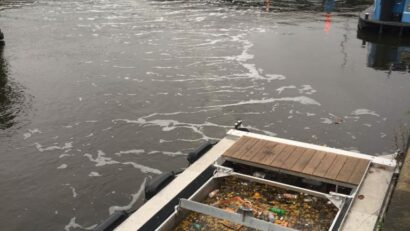
Swamps as a climate saver: Ireland stores tons of CO₂ through 33,000 hectares of new peatlands
Ireland is reforesting its swamps and bogs in a bid to fight climate change. Although marshlands cover only three percent of the earth, they store 25 percent of the world’s CO2. So far, around 8100 hectares on the “green island” have been flooded with water. The “watering” is intended to create optimum conditions for new peat land. Experts believe that the “renaturation” project will store enormous amounts of climate-damaging greenhouse gases.
Peatlands are considered to be the ecosystem with the greatest storage potential for CO₂. When a plant dies, the CO₂ stored in it is released into the water or into the marsh soil as it decays, rather than into the air. Bogs and marshlands are therefore true climate protectors!
Trees store CO₂ and release oxygen This process is called photosynthesis. When trees die and rot, they release the remaining CO₂ into the environment, especially into the air. However, if a tree falls into a swamp, the CO₂ is not released into the air but stored in the water and soil. If the swamp dries up, and thus also the CO₂-containing mixture, peat is formed. Over thousands of years, a well-known raw material is created from it: coal!
Ireland is reforesting swamps and peatlands to fight climate change
Until the industrial revolution, almost one fifth of Ireland was covered with peatlands. From the 1850s until today, people have destroyed large parts of Ireland’s nature – that is, besides marshlands, also countless forests. The partly state-owned company “Bord na Móna” wants to revive nature and make Ireland the green lung of Europe to fight climate change. For this reason, they are filling 33,000 hectares of alluvial land with water over the next few years. They also want to reintroduce native species of plants and animals that have been driven or wiped out over the years. Currently, just under a quarter, or 8125 hectares, has been “reforested.”
How Ireland’s marshlands were destroyed and rebuilt
The reason for the poor condition of Ireland’s peatlands is historical. The tradition of “peat cutting” has been preserved and carried on for generations. The peat, when dried, is a good fuel. For the economy, especially during the industrialization, the peat was in great demand because it could be found everywhere on the island and was therefore very cheap. Peat was also used to heat the houses in Ireland.
Another reason for the large-scale drainage of the Irish peatlands is agriculture. During the Industrial Revolution, Ireland developed not only railroads and cities, but also agriculture on a large scale. For the cultivation of food, large areas of marshland were destroyed.
Even at the beginning of industrialization, the destruction of the marshes was already underway: by the end of the 19th century, Ireland was more industrialized than the whole of Austro-Hungarian Empire or Spain, two countries that were significantly larger in terms of area and population. The partly state-owned Irish company “Bord na Móna” and others now wants to declare war on environmental destruction and make the “emerald isle” live up to its name again.
This work is licensed under the Creative Common License. In case of new republication, please cite NeueZeit.at/Noah Düker as the Source/Author and set a link to the article in English: https://scoop.me/ireland-climate-change-peatlands/
The rights to the content remain with the original publisher. Läs mer…




